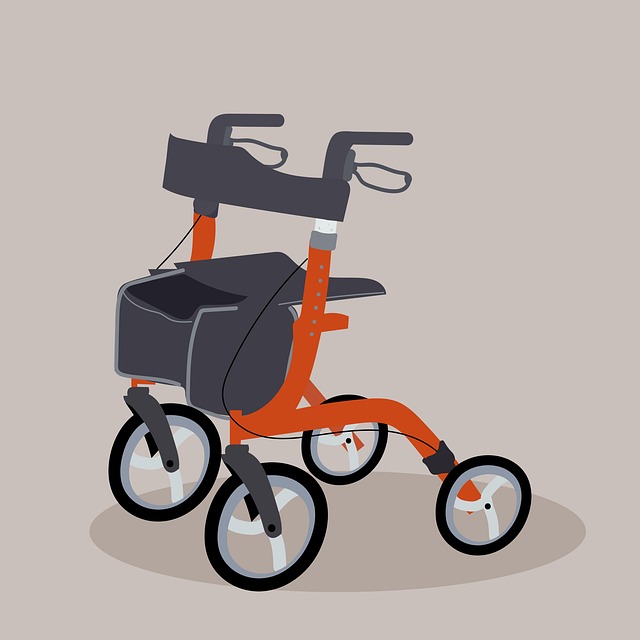Karachi's status as Pakistan's economic hub and medical center is strained by a severe parking crisis, attracting national and international patients but leading to congestion and frustration. This issue, exacerbated by urbanization, population growth, and limited real estate, impacts all stakeholders—patients, families, healthcare workers, and urban mobility. Innovative solutions like digitalized parking systems, public transport incentives, multi-level parking structures, and dynamic pricing can enhance efficiency, reduce traffic, and create a sustainable, accessible hospital parking system for Karachi's community.
Karachi, Pakistan’s vibrant metropolis, is renowned for its bustling healthcare facilities, serving as a vital hub for millions. However, the city’s rapid growth has exacerbated parking challenges within these hospitals. This article delves into the complex issues surrounding parking shortages in Karachi’s healthcare institutions, exploring their causes and profound effects on patients, staff, and urban mobility. We also present potential solutions and future strategies to enhance efficient hospital parking management, offering a comprehensive insight into this pressing matter for Karachi’s thriving medical community.
- Understanding Karachi's Healthcare Hub and its Parking Challenges
- Causes of Parking Shortages in Karachi Hospitals
- Impact on Patients, Staff, and Urban Mobility
- Potential Solutions and Future Strategies for Efficient Hospital Parking Management in Karachi
Understanding Karachi's Healthcare Hub and its Parking Challenges
Karachi, known as Pakistan’s economic powerhouse, is home to some of the city’s premier healthcare facilities. These hospitals attract patients from across the country and even internationally, reflecting Karachi’s status as a regional medical hub. However, this concentration of medical expertise comes with significant parking challenges. The influx of patients, accompanying family members, and hospital staff creates immense pressure on existing parking spaces, often leading to congestion and frustration for all stakeholders involved.
The parking issues in these healthcare institutions are multifaceted. Limited parking areas, inadequate infrastructure development over the years, and an ever-growing population contribute to the problem. Patients, especially those from outlying areas, might arrive early for appointments, further exacerbating the parking strain. Addressing these challenges requires a comprehensive strategy involving efficient space management, innovative solutions like multi-level parking structures, and possibly, smart transportation planning to encourage patients and visitors to utilize alternative modes of transport.
Causes of Parking Shortages in Karachi Hospitals
The parking shortage crisis in Karachi hospitals is a multifaceted issue, with several contributing factors that have led to this challenging situation. One primary cause is the rapid urbanization and population growth in the city. As Karachi’s populace expands, so does the demand for healthcare services, resulting in an influx of patients and visitors seeking parking spaces at these facilities. Additionally, many hospitals in Karachi are located in dense urban areas, where real estate is scarce and expensive, making it difficult to allocate ample space for parking lots.
Another significant factor is the lack of proper planning and infrastructure development. Karachi’s hasty urbanization has often outpaced its urban planning capabilities, leading to inadequate road networks and parking facilities. The issue is exacerbated by poorly designed hospital campuses that fail to incorporate sufficient parking areas. Moreover, the increasing number of private vehicles in the city has put immense pressure on existing parking infrastructures, especially during peak hours, when hospitals see a surge in patient arrivals and outpatients’ visits.
Impact on Patients, Staff, and Urban Mobility
The parking crisis in Karachi’s hospitals is taking a toll on all stakeholders, from patients and their families to healthcare staff and urban mobility as a whole. Patients often face long searches for parking spaces, leading to increased stress and delay in reaching medical assistance. This can be especially challenging for those with limited mobility or emergency cases, exacerbating an already stressful situation.
Healthcare workers are also affected, with many spending valuable time navigating the labyrinthine parking areas instead of focusing on patient care. The constant need to move between floors and departments for appointments further disrupts efficient workflow. Additionally, the congestion caused by circling for parking contributes to Karachi’s overall urban mobility issues, adding to traffic jams and air pollution in this already bustling metropolis.
Potential Solutions and Future Strategies for Efficient Hospital Parking Management in Karachi
To address the pressing parking issues in Karachi’s hospitals, several potential solutions can be explored. First, implementing a centralized parking management system with digital signage and real-time availability updates can help patients and staff navigate to open spots efficiently. This technology ensures optimal utilization of existing spaces, reducing congestion and wait times. Additionally, encouraging the use of public transport through incentives like discounted fares or shuttle services could significantly decrease the number of private vehicles on hospital premises.
Looking ahead, future strategies should focus on sustainable and integrated solutions. This includes designing new hospitals with multi-level parking structures and promoting electric vehicle charging stations to reduce carbon emissions. Collaboration between hospitals, local authorities, and transport planners is crucial for implementing dynamic pricing models based on demand, ensuring optimal resource allocation. By integrating these measures, Karachi can strive towards a more efficient, accessible, and eco-friendly hospital parking management system that benefits the entire community.
Karachi’s healthcare landscape is a vibrant yet complex web of challenges, with parking issues significantly impacting urban mobility. By understanding the root causes, from patient and staff demand to inadequate infrastructure, we can envision solutions that streamline hospital parking management. Implementing strategic strategies such as smart parking systems, efficient layout designs, and alternative transportation options can alleviate congestion and enhance the overall healthcare experience in Karachi. Embracing these changes is a step towards ensuring accessibility and convenience for all, fostering a more sustainable and responsive urban environment.

Leave a Reply